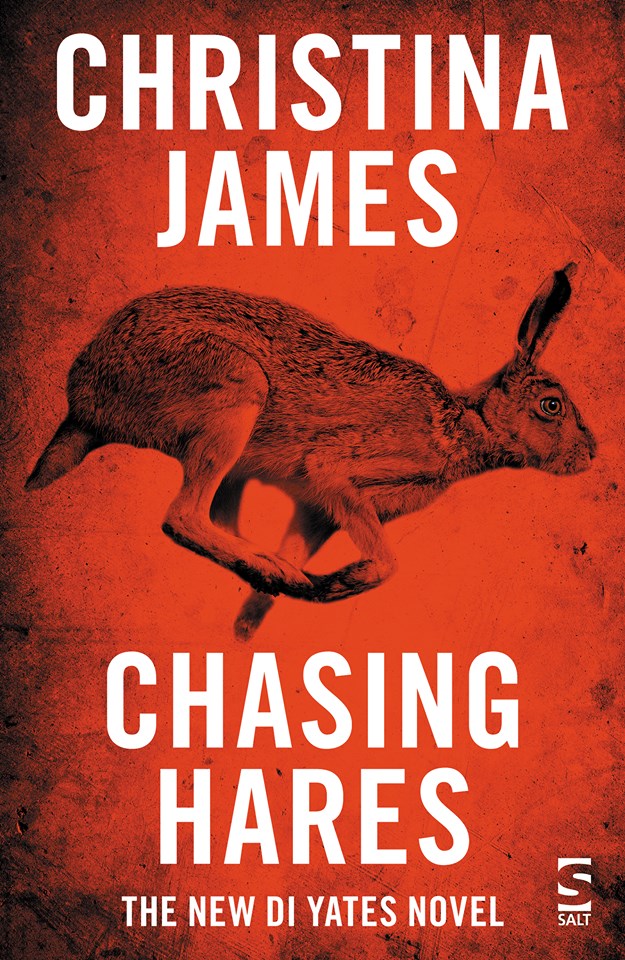I’ve been in Brighton for most of this week, attending the academic bookselling and publishing conference for which I’ve been organising the speaker programme for the past fourteen years. I shall eventually write about the whole of this conference, but in a different forum and for a different audience: I don’t think that a detailed account of the present hot topics in academic publishing would greatly appeal to most of the readers of this blog! However, I do think – and hope – that you’ll be interested in the following account of the comments made by Dr Lucy Robinson, lecturer in Modern History at the University of Sussex and published historian, during a fascinating panel session for authors that took place on the first day of the conference.
Lucy said that there was sometimes a tension between writing her blog and writing her book (she has already published a book with Manchester University Press and is currently working on another). Sometimes, she almost feels that there is a competition going on between them and wonders which is the right way to go: should she focus more on the book or concentrate on the blog? But she also said that a smart author could create a ‘virtuous circle’ in which the blog could feed creatively into the book.
She said that she disseminates her research via a number of social networks, but at the same time wants to publish her history of the 1980s in a conventional publishing format. She explained that the challenges facing a contemporary historian are different from those that a historian of, say, the early modern period has to address. For the latter, the main difficulty lies in getting his or her hands on the small amount of material that now survives. Lucy’s challenge is that her material is ‘everywhere’ and that it is important to tell a version of everyone’s story, down to, for example, the cakes that people in the ’80s made or ate. The format that she uses is therefore to a large extent the product of the particular time that she writes about. To organise the material in a conventional book with the same effectiveness that the digital format allows is difficult. Nevertheless, she wants to see her work in both formats.
One of her reasons for this is that, although she values the internet as a medium, she also loves books. Another is that, for an academic, getting a book published by a recognised publisher is an ‘esteem marker’. Academic careers depend upon producing ‘globally significant research in academic form.’ The object is to influence others – fellow academics, researchers, students – to do or think something differently as a result of the research. This goal of impact cannot be achieved unless the research has been published in a traditional, authenticated format. This does not mean that she does not value the blog, however. She said that “the blog helps you to keep up-to-date. It allows you to change your mind. It is little. It is safe. I can best describe it as a way of being ecological with your work: then you can write it up in your book afterwards to give the work authority.”
She added that writers are now on a journey and it is a tricky one. Social networking enables a sort of autobiographical build-up of identity. Parallel to this is the other persona of the academic writing the book, ‘saying clever stuff and selling it to people.’ She repeated that there is a tension there. One of the audience asked her why the print output of her work was so important to her. She replied that she simply wanted to write a book called ‘The History of the 1980s’.
I found this really interesting, because I think that fiction writers often experience the same kind of dichotomy. We, too, value both formats; most of us also seek validation via the printed word. We understand the value of reaching our readers online, via social networking and blogs, and we don’t begrudge the time and effort spent producing work for them to consume free of charge, work that we hope that they will enjoy. There can be few greater rewards for a writer than to gain a following of loyal online readers who are under no compulsion to read our work but nevertheless return to it time and again because they appreciate it. At the same time, most of us also want to write more formally and there can be few writers who don’t mind whether or not they are paid for their formal creative output. Payment is itself a kind of validation. I said this to Lucy over a cup of tea after her presentation and also mentioned that, for me, there was the further dilemma of not having the energy – or, sometimes, merely the ‘bandwidth’ – to write both blog and book and do the day job as well. She agreed, and said that, although for the conference she had distilled her experiences as an academic writer, many of the things of which she spoke had come from the world of fiction writing originally. Academic writers had picked up on some of the digital initiatives that fiction writers had developed and adapted them to their own writing.
Food for thought, and fascinating, I hope you’ll agree. Lucy’s blog may be found here. I hope that perhaps she will become an occasional visitor to this blog now. I’d also welcome comments from other writers who would like to join this debate.



That’s interesting! I fully understand the pressure for academics to get work out to be published. There are quite some demands on them now to produce work for journals as well as books. Being an academic is very much performance measured these days. I can imagine she would feel those tensions if she enjoys blogging too. They are both disciplines in their way. I have recently been reading interesting research material about blogging being used for academic purposes too, but this is in my own discipline. I feel the tensions between my academic world and my creative world myself, but I am certain Lucy’s are more onerous!
Thank you, Valerie, for starting the ball rolling from a higher education perspective. I’ll be interested to see how this discussion goes! I hope all is well with you. 🙂
Thank you so much for posting this. I think that in many ways I feel my blogging (or lack of it) is a metaphor for the dual pressures of ‘esteem’ and ‘impact’ in academic research. One of the many things that I really loved about working with the Observing the 80s team was the way in which it managed to cut through these two pressures because it was so teaching focused and student centred.
Hello, Lucy! Thank you, in return, for visiting and commenting. I have continued to think a lot about the issues you raised and their very clear relevance to what I do here and in my writing for formal publication. I’m always excited when visitors here engage with the ideas and offer their viewpoints; I sincerely hope that your presence today will encourage some responses.
I’d be very interested to know more about the ‘Observing the 80s’ work, Lucy. How did it cut through the two pressures by being student centred? I ask because in my TESOL discipline, almost everything is focused on being student centred, but there is still the need to publish and gain esteem for the discipline too. Maybe I misunderstand what you mean here, but I’d be curious to know how it balanced things out.
Sorry that I took so long to get back to you. Here are a couple of posts that show the sort of things we’ve been doing. Firstly our students were part of the selection and permissions process for one section of our sources.http://blogs.sussex.ac.uk/observingthe80s/2012/06/01/ephemera-workshop/
We are also getting students who are using the resources to analyse the project for us. http://blogs.sussex.ac.uk/observingthe80s/2014/03/31/history-3490-at-york-university-toronto/
The way I’m modelling it at the moment is ‘Collaboration in – Collaboration out’. The sources are all various forms of collaboration; the project is a collaboration between different archives, and between archivists and historians and digital innovators. We want the outputs to be collaborative too.
In the end I think the issue of how we balance the pressures of Student centred learning in a REF focused world is very tricky. But we were greatly aided by the fact that JISC funded us precisely because it is an open teaching centred project. (Which I’m now trying to produce an academic article from – so we’ve inverted the usual process I suppose)